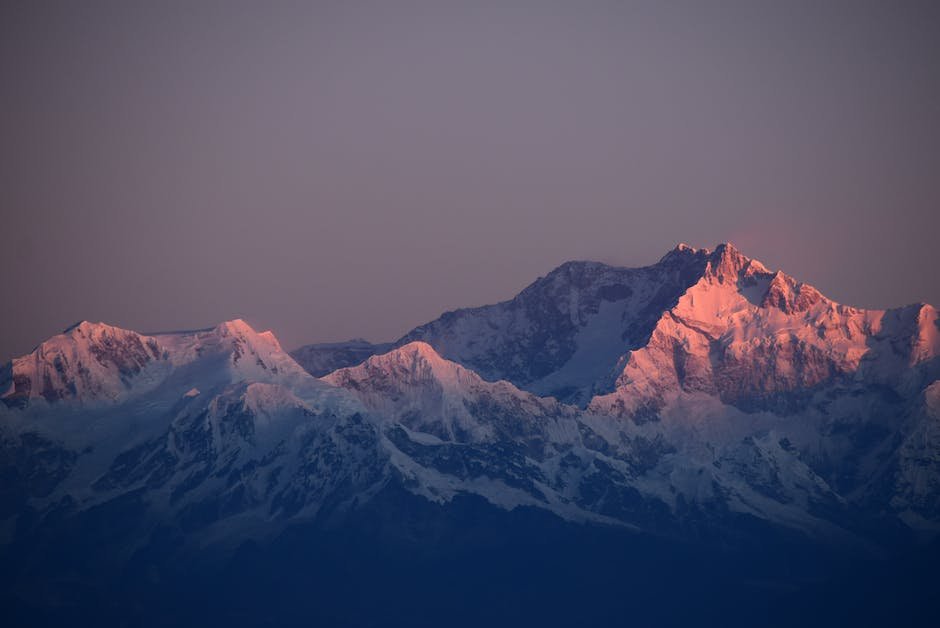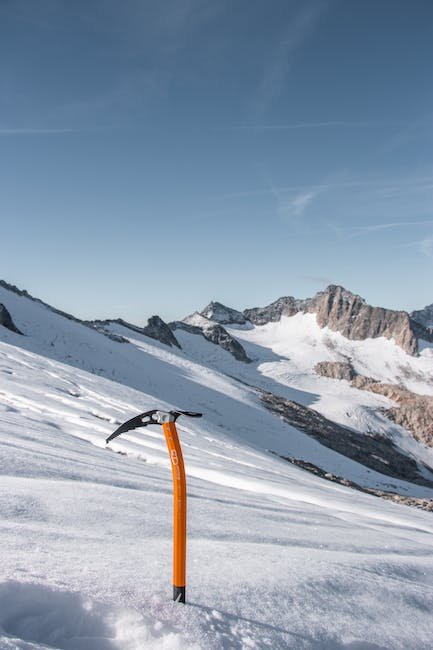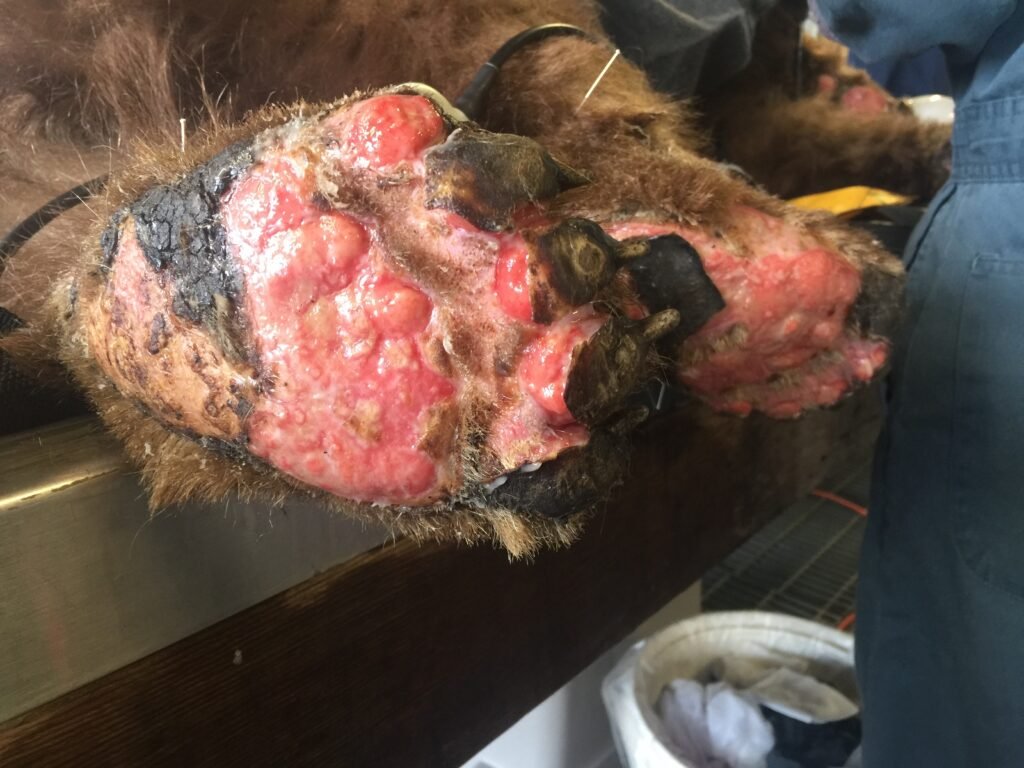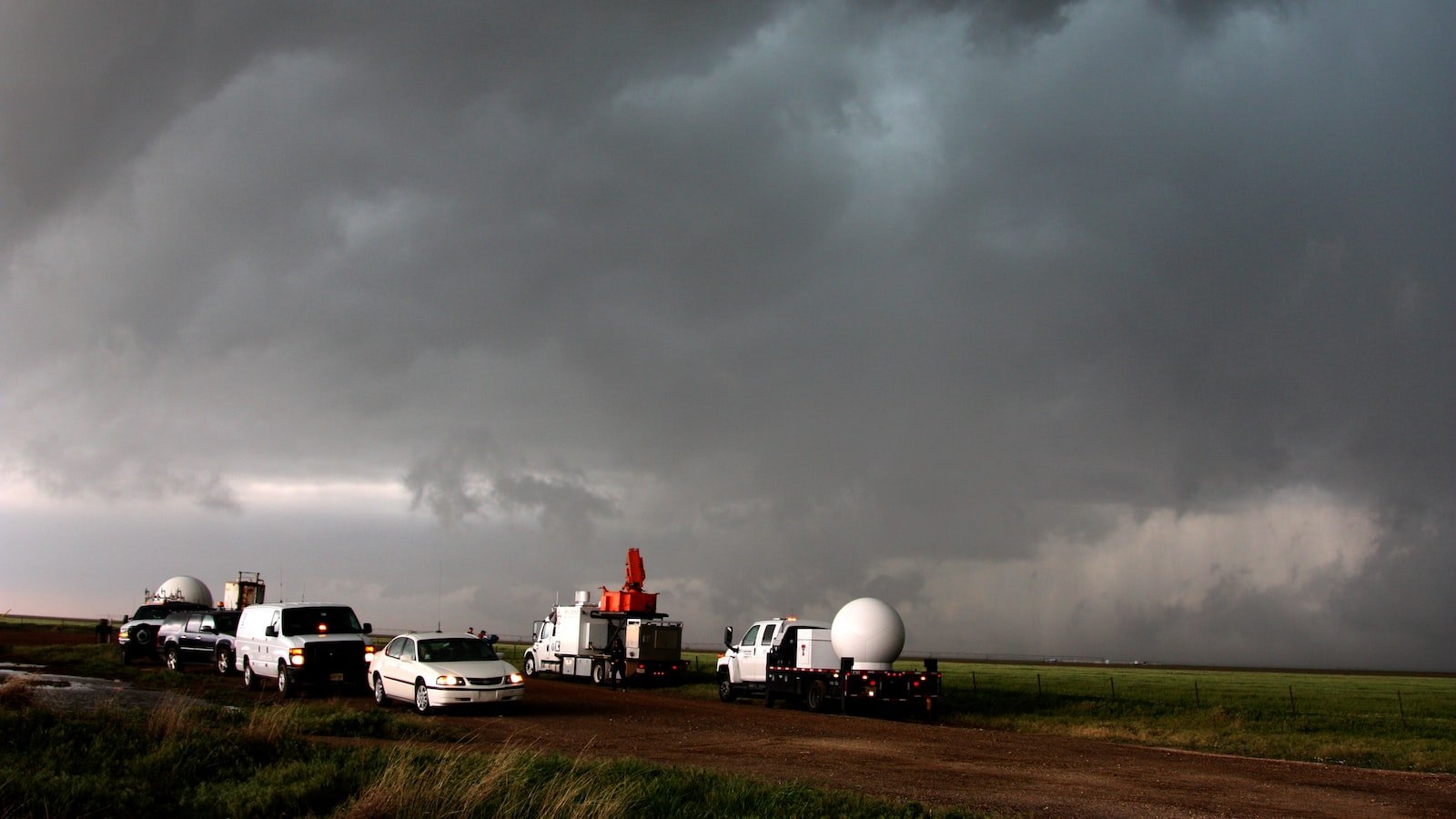Now Reading: How to Treat Altitude Sickness in the Mountains
-
01
How to Treat Altitude Sickness in the Mountains

How to Treat Altitude Sickness in the Mountains
Lungs gasping for air, heads pounding like a thunderstorm, and bodies feeling as heavy as lead – the mountains hold a captivating allure, but the thin air at high altitudes can quickly turn an adventure into an unwelcome battle with altitude sickness. The grandeur of mountain peaks seems to mock those struggling to acclimate, leaving them longing for relief from this merciless affliction. However, fear not, for beyond the daunting precipices lies a realm of insightful remedies and sage advice, ready to rescue even the most beleaguered mountaineer. Embark on a journey of enlightenment as we unveil the secrets on how to subdue the relentless grip of altitude sickness, and reclaim your mountaintop dreams.
Table of Contents
- Preparing for High Altitude: Essential Tips for Preventing Altitude Sickness
- Understanding Altitude Sickness: Symptoms, Causes, and Risk Factors
- Step-by-Step Guide: Treating Altitude Sickness During Mountain Expeditions
- Natural Remedies and Home Treatments: Alleviating Symptoms of Altitude Sickness
- Seeking Medical Attention: When to Consult a Doctor for Altitude Sickness
- Q&A
- In Summary

Preparing for High Altitude: Essential Tips for Preventing Altitude Sickness
Altitude sickness can put a damper on your high altitude adventure, but fear not! With a few simple precautions, you can enjoy the breathtaking views without any discomfort. Here are some essential tips to keep in mind before embarking on your journey to the heights:
1. Gradual acclimatization: One of the key factors in preventing altitude sickness is giving your body enough time to adjust. Start your ascent slowly, allowing your body to acclimate to the decrease in oxygen levels. Take it easy for the first two to three days and avoid strenuous physical exertion.
2. Stay hydrated: High altitudes often lead to increased dehydration due to the dry air and faster breathing. Drink plenty of water throughout the day to keep your body hydrated. Avoid excessive caffeine and alcohol consumption as they can contribute to dehydration.
3. Pay attention to your diet: Maintaining a balanced and nutritious diet can help your body cope with the altitude. Include foods rich in complex carbohydrates, such as whole grains and vegetables, to provide a steady release of energy. Additionally, foods high in potassium, such as bananas and avocados, can help regulate your body’s fluid balance.
4. Be aware of medication: Consult with your healthcare provider before your trip, as there are medications available that can assist with altitude sickness prevention. These medications, such as acetazolamide, can help your body adjust to the altitude more comfortably. However, they should only be used under proper medical guidance.
By following these essential tips, you can prepare yourself for the challenges of high altitude and minimize the risk of altitude sickness. Remember, your safety and well-being should be a top priority, allowing you to fully immerse yourself in the wonders of the great heights without any worries.
Understanding Altitude Sickness: Symptoms, Causes, and Risk Factors
Altitude sickness, also known as acute mountain sickness (AMS), is a condition that can occur when you ascend to high altitudes too quickly. It is essential to familiarize yourself with the symptoms, causes, and risk factors associated with this condition to ensure a safe and enjoyable experience in the mountains.
Here are some common symptoms of altitude sickness to watch out for:
- Headache: A persistent, throbbing headache is one of the earliest signs of altitude sickness. It may worsen with physical activity.
- Shortness of breath: Feeling breathless or having difficulty breathing, especially during exertion, can be an indicator of altitude sickness.
- Nausea and vomiting: Upset stomach, loss of appetite, and vomiting can be experienced as the body adjusts to the altitude.
- Dizziness and fatigue: Feeling lightheaded, dizzy, or excessively tired are common symptoms of altitude sickness.
Altitude sickness is primarily caused by the decreased oxygen levels at higher altitudes. When ascending rapidly, the body may not have enough time to adjust to the reduced oxygen supply, leading to AMS. However, certain individuals are at higher risk of developing altitude sickness:
- Rapid ascent: Climbing to high altitudes too quickly without proper acclimatization increases the likelihood of AMS.
- Individual susceptibility: Some people are more prone to altitude sickness than others, regardless of fitness level or past experiences.
- High altitude destinations: Traveling to places above 8,000 feet (2,400 meters) significantly increases the risk of altitude sickness.
- Age: Young children and older adults are generally more susceptible to altitude sickness.
- Medical conditions: Individuals with respiratory problems, heart diseases, or other medical conditions may have a higher risk of developing AMS.
It is crucial to listen to your body and pay attention to any symptoms of altitude sickness during high-altitude adventures. By understanding the causes and risk factors, you can take appropriate precautions, such as gradual acclimatization, proper hydration, and avoiding excessive physical exertion, to minimize the chances of developing altitude sickness and safely enjoy your mountainous escapades.
Step-by-Step Guide: Treating Altitude Sickness During Mountain Expeditions
When embarking on exciting mountain expeditions, altitude sickness can occasionally pose a challenge. Fear not, for we have prepared a comprehensive step-by-step guide to help you effectively treat altitude sickness during your high-altitude adventures.
Recognizing the Symptoms
Altitude sickness can manifest in various ways, including headaches, nausea, dizziness, difficulty sleeping, and shortness of breath. It’s crucial to be aware of the signs to catch it early for prompt treatment.
Taking Immediate Action
If you or a fellow mountaineer experiences symptoms of altitude sickness, it’s essential to take immediate action. Begin by descending to a lower altitude, as this can significantly alleviate symptoms. Resting and hydrating properly are also highly recommended.
Acclimatization and Medication
Allowing your body time to acclimatize to the high altitude is key. Gradually ascending rather than rushing up the mountain is vital for risk reduction. Additionally, medications like acetazolamide can be prescribed by a medical professional to aid in acclimatization.
Monitoring and Staying Alert
Throughout your mountain expedition, it’s important to continuously monitor your body and stay alert for any recurring or worsening symptoms. Keeping a journal to track your symptoms, oxygen saturation levels, and progress can be incredibly helpful for both you and your healthcare provider.
Seeking Professional Help
If symptoms persist or worsen, it’s crucial to seek immediate medical assistance. Professional guidance and evaluation are essential in severe cases to ensure the well-being of all mountaineers.
By following this step-by-step guide, you’ll be well-prepared to tackle altitude sickness and enjoy your mountain expeditions to the fullest. Remember, safety and health should always be a top priority in these exhilarating adventures. Happy trekking!
Natural Remedies and Home Treatments: Alleviating Symptoms of Altitude Sickness
Altitude sickness, also known as acute mountain sickness (AMS), can occur when you reach high altitudes too quickly. It often affects individuals traveling to mountainous regions or engaging in high-altitude activities. While it’s important to consult a healthcare professional for severe cases, here are some natural remedies and home treatments that may help alleviate the symptoms of altitude sickness:
– Hydration: Staying properly hydrated is key to combating altitude sickness. Drinking plenty of water helps your body adjust to the change in oxygen levels and reduces the likelihood of experiencing symptoms such as headaches and nausea. Remember to stay hydrated even if you don’t feel thirsty.
– Ginger: This natural root has been used for centuries to treat various ailments, including nausea. Ginger can be consumed in several forms, such as ginger tea or capsules, and may provide relief from the queasiness associated with altitude sickness.
– Slow ascent: One of the most effective ways to prevent altitude sickness is by slowly acclimatizing your body to higher elevations. Give yourself ample time to adjust and avoid rapidly ascending to higher altitudes. Take breaks during your ascent and allow your body to adapt at its own pace.
Remember, these natural remedies and home treatments may offer relief for mild to moderate cases of altitude sickness. However, it’s crucial to seek medical attention if you experience severe symptoms or if your condition does not improve with these methods. Take care of your body, prioritize safety, and embrace the beauty of high altitudes responsibly.
Seeking Medical Attention: When to Consult a Doctor for Altitude Sickness
Altitude sickness, also known as acute mountain sickness (AMS), is a condition that can occur when ascending to high altitudes too rapidly. While it is common for individuals to experience mild symptoms such as headaches, dizziness, and fatigue, it is essential to recognize when seeking medical attention becomes necessary.
If you or someone you know is at high altitude and experiences the following symptoms, it is crucial to consult a doctor:
- Severe headache that does not subside with pain medication
- Shortness of breath even at rest
- Bluish coloration of the lips or fingertips
- Confusion or disorientation
- Productive cough with blood or pink, frothy sputum
These symptoms may be signs of more severe altitude sickness conditions, such as high altitude cerebral edema (HACE) or high altitude pulmonary edema (HAPE). In these cases, immediate medical attention is necessary to avoid life-threatening complications.
It’s essential to remember that prevention and proper acclimatization are the best strategies to minimize the risk of altitude sickness. However, if you or someone you are with presents any of the aforementioned severe symptoms, it is important not to delay seeking medical help. A healthcare professional will be able to provide an accurate diagnosis and determine the most appropriate treatment options.
Q&A
### **Q: What exactly is altitude sickness?**
Altitude sickness, also known as acute mountain sickness (AMS), is a condition that affects individuals when they ascend to high altitudes too quickly. It is caused by the lower oxygen levels at high altitudes and can result in symptoms such as headaches, nausea, and shortness of breath.
### **Q: How can I prevent altitude sickness?**
To prevent altitude sickness, it is important to acclimatize slowly. Gradually ascend to higher altitudes, allowing your body to adjust to the decrease in oxygen levels. Stay hydrated, avoid alcohol and strenuous activity, and consider taking medication such as acetazolamide prescribed by a healthcare professional.
### **Q: What should I do if I experience altitude sickness?**
If you experience altitude sickness symptoms, the best course of action is to descend to a lower altitude. Resting, hydrating, and avoiding alcohol can also help alleviate the symptoms. If symptoms worsen or persist, seek medical attention.
### **Q: Can I treat altitude sickness with medication?**
Medication, such as acetazolamide, can be used to prevent and treat altitude sickness. However, it is important to consult with a healthcare professional before taking any medication. They can properly assess your situation and advise on the best course of action.
### **Q: Are there any natural remedies for altitude sickness?**
Though not scientifically proven, some individuals find natural remedies helpful. These may include drinking coca tea, eating garlic, and consuming foods rich in potassium. However, it is essential to remember that these remedies should be used in conjunction with proper acclimatization and medical advice.
### **Q: Is it safe to ascend rapidly if I have experienced altitude sickness before?**
Ascending rapidly after experiencing altitude sickness before is not recommended. It increases the risk of developing more severe forms of altitude sickness, such as high altitude cerebral edema (HACE) or high altitude pulmonary edema (HAPE). Safety should always be prioritized when dealing with altitude-related conditions.
### **Q: Can children and older adults be affected by altitude sickness?**
Children and older adults are equally susceptible to altitude sickness. In fact, they may be at an increased risk due to their bodies’ reduced ability to adapt to altitude changes. Extra caution and slower acclimatization processes are advised for these age groups.
### **Q: Is it dangerous to exercise or engage in vigorous activities at high altitudes?**
Engaging in vigorous activities at high altitudes can be dangerous, as it puts additional strain on the body that is already coping with reduced oxygen levels. Strenuous activities should be avoided until proper acclimatization has occurred to reduce the risk of altitude sickness or related complications.
In Summary
As we conclude this adventurous journey through the peaks and valleys of combating altitude sickness, we hope to have provided you with a comprehensive guide to conquer the heights with confidence. The mountains, majestic and alluring, have always beckoned the intrepid souls seeking solace in their magnificent embrace. However, altitude sickness may act as an unforeseen hurdle, attempting to dampen the spirits of those pursuing the summit.
But fear not, for armed with the knowledge and insights shared within these pages, you are equipped to triumph over this formidable opponent. From the early signs that nudge you towards caution, to the preventive measures that act as your safeguard, we have delved deep into this topic to ensure your safety and well-being amidst the thin mountain air.
Remember, altitude sickness can affect anyone, regardless of their experience or resilience. It is a matter of acclimatization and preparation that will determine your success in conquering those lofty heights. Be patient and listen to your body’s whispers, as it might be a sign that you need to slow down or take a break along your upward journey.
With each page you have turned, you have traveled deeper into the realm of altitude sickness, exploring the remedies and treatments that can alleviate its grip on your body. We have unveiled the mysterious powers of hydration and advocated for the golden rule of gradual ascent, urging you to take small steps onward like the rhythmic footfalls of a mountaineer.
As the curtain falls on this enlightening article, it is crucial to emphasize the significance of seeking professional medical help when faced with severe symptoms or if your ailment persists. Altitude sickness is a formidable foe, and in some cases, it may require the assistance of experts in high-altitude medicine.
So, fellow mountaineers and adventure enthusiasts, armed with newfound wisdom, forge ahead onto the mountains, knowing that you are equipped to face any challenges that come your way. By respecting the mountains and yourself, a harmonious dance ensues, allowing you to experience the exhilaration and stunning beauty of each peak while entrusting it with the care it deserves.
May these insights accompany you on your grand expeditions, and may your love for the mountains continue to bloom with each breathtaking summit conquered. Stay informed, stay prepared, and know that with each stride, you are creating your own legendary tale amidst the majestic tapestry of mountain peaks. Safe travels, dear readers.
As an affiliate, my content may feature links to products I personally use and recommend. By taking action, like subscribing or making a purchase, you’ll be supporting my work and fueling my taco cravings at the same time. Win-win, right?
Want to read more? Check out our Affiliate Disclosure page.





